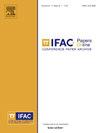Gamification in control engineering: An ongoing initiative at the University of Almería*
Q3 Engineering
引用次数: 0
Abstract
Gamification refers to the utilization of gaming methods and tactics in non-traditional areas, like education. In this work, we describe different gamification-based methods for teaching automatic control in engineering studies as an alternative or support to the traditional teaching system. The experiences are being developed within the framework of a teaching innovation project developed at the University of Almería (Spain). The main objective of this project is to analyze the academic feasibility and acceptance of the use of gamified experiences by both professors and students. Specifically, the paper gives an overview of three different types of games. The first is a solitaire-style card game focused on the reinforcement of the theoretical concepts related to open-loop dynamic system analysis and the design of closed-loop control systems. The second is a virtual challenge of tuning Proportional, Integral, and Derivative (PID) controllers. The goal of this game is for students to understand the impacts of proportional, integral, and derivative actions when these controllers operate in closed-loop mode. The third is an escape room with the primary objective of improving students’ comprehension of basic control principles covered in the initial introductory course in engineering studies.
控制工程中的游戏化:阿尔梅里亚大学正在开展的一项活动*
游戏化是指在教育等非传统领域利用游戏方法和策略。在这项工作中,我们介绍了不同的游戏化方法,用于工程学自动控制教学,作为传统教学系统的替代或支持。这些经验是在阿尔梅里亚大学(西班牙)的一个教学创新项目框架内开发的。该项目的主要目标是分析游戏化体验在学术上的可行性,以及教授和学生对游戏化体验的接受程度。具体而言,本文概述了三种不同类型的游戏。第一种是接龙式纸牌游戏,重点是强化与开环动态系统分析和闭环控制系统设计相关的理论概念。第二个游戏是调整比例、积分和微分(PID)控制器的虚拟挑战。这个游戏的目的是让学生了解当这些控制器在闭环模式下运行时,比例、积分和导数操作所产生的影响。第三个游戏是逃生室,主要目的是提高学生对工程学入门课程中涉及的基本控制原理的理解。
本文章由计算机程序翻译,如有差异,请以英文原文为准。
求助全文
约1分钟内获得全文
求助全文
来源期刊

IFAC-PapersOnLine
Engineering-Control and Systems Engineering
CiteScore
1.70
自引率
0.00%
发文量
1122
期刊介绍:
All papers from IFAC meetings are published, in partnership with Elsevier, the IFAC Publisher, in theIFAC-PapersOnLine proceedings series hosted at the ScienceDirect web service. This series includes papers previously published in the IFAC website.The main features of the IFAC-PapersOnLine series are: -Online archive including papers from IFAC Symposia, Congresses, Conferences, and most Workshops. -All papers accepted at the meeting are published in PDF format - searchable and citable. -All papers published on the web site can be cited using the IFAC PapersOnLine ISSN and the individual paper DOI (Digital Object Identifier). The site is Open Access in nature - no charge is made to individuals for reading or downloading. Copyright of all papers belongs to IFAC and must be referenced if derivative journal papers are produced from the conference papers. All papers published in IFAC-PapersOnLine have undergone a peer review selection process according to the IFAC rules.
 求助内容:
求助内容: 应助结果提醒方式:
应助结果提醒方式:


